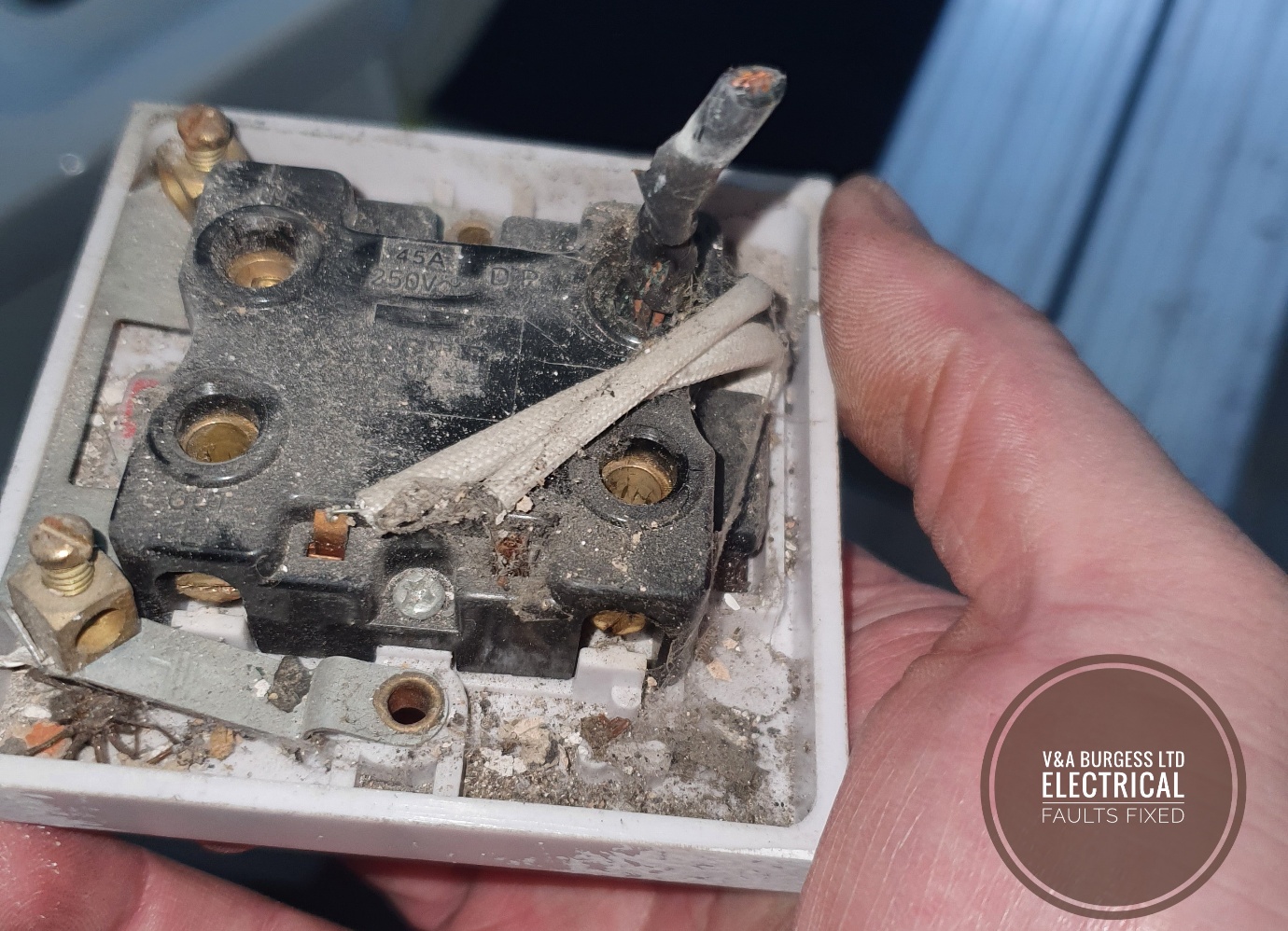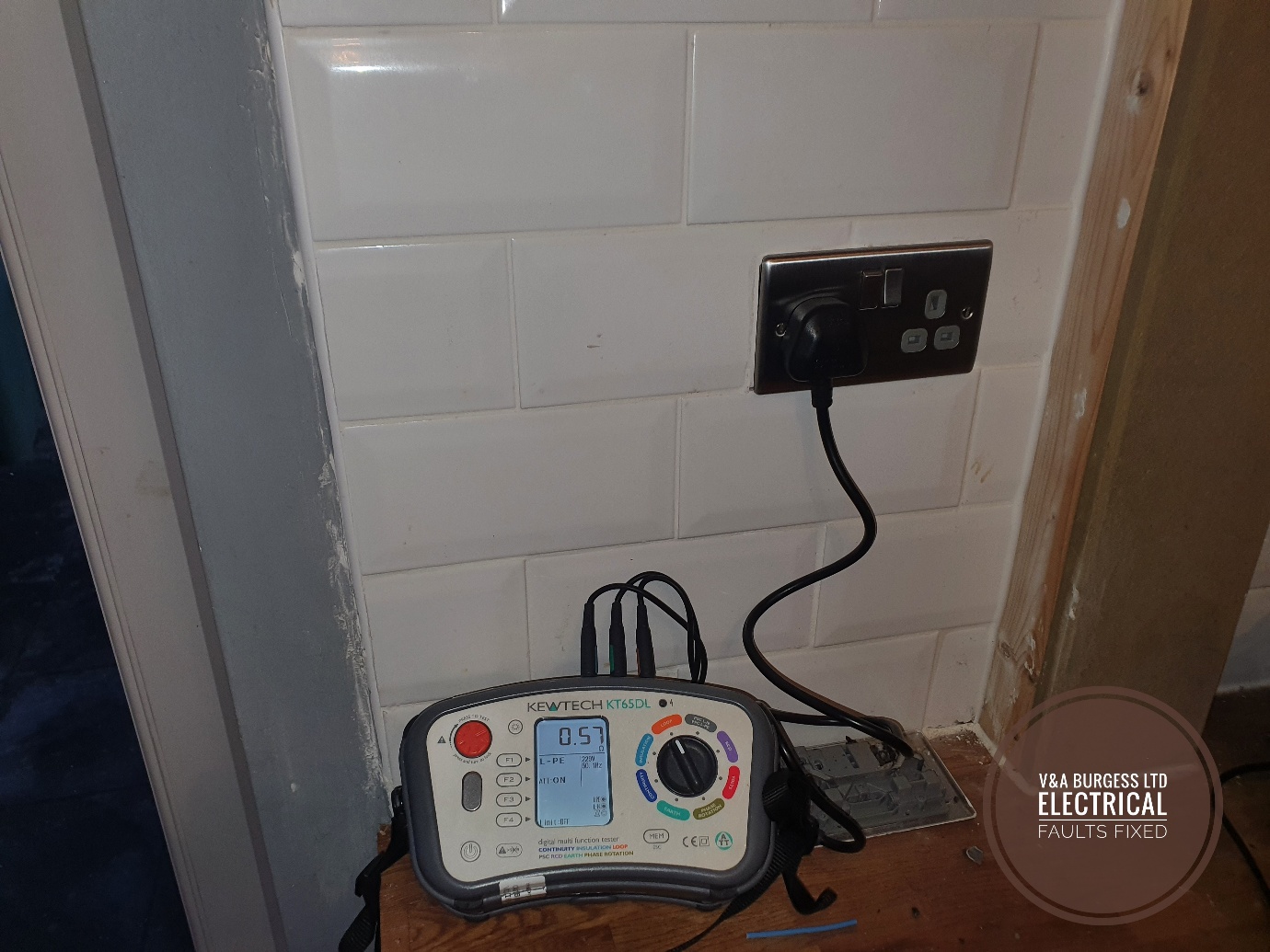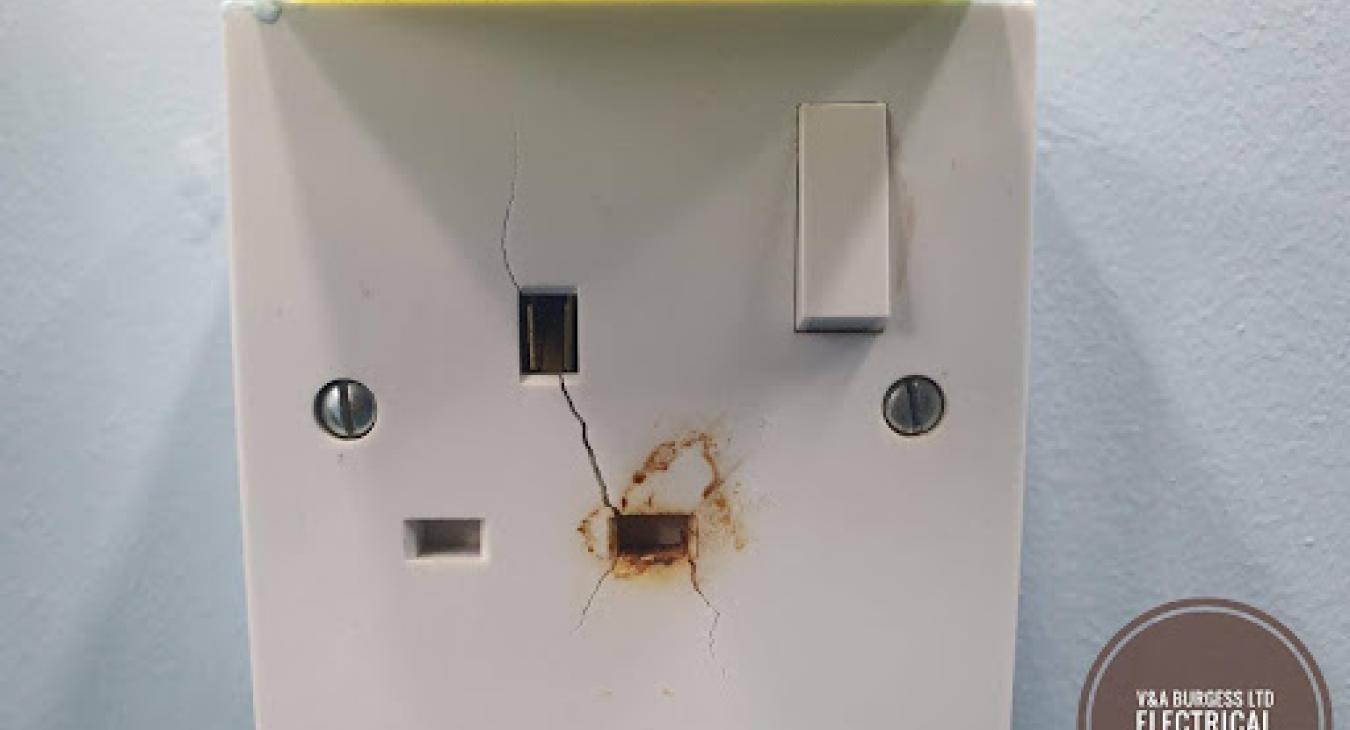A sparking outlet can be dangerous under many circumstances.
Table of Contents
- Why is a sparking outlet dangerous?
- Can loose connections cause Sparking?
- What happens if loose connections occur?
- Will the circuit breaker trip off if there is sparking?
- Are old outlets more at risk or sparking?
- Does sparking mean my electrical wiring is dangerous?
- Is an Electrical Surge the same as Sparking?
- Can water damage cause a sparking outlet?
- Can I just "not use" that socket?
- Conclusion
If the spark only occurs when you plug in a piece of equipment that begins to run immediately then the spark is likely to be caused by the electricity jumping the gap as the pins connect into the socket. If the sparking occurs under normal operation with or without equipment connected then there is definitely something to be worried about.
In any event, a sparking outlet is something that should be investigated by a professional electrician whether it’s a small spark, brief spark, tiny blue sparks, or a small blue spark. Electrical systems that spark, are faulty or dangerous can be a serious fire hazard and can result in house fire. It’s best to have any electrical problems checked by a qualified electrician.
Back to top1) Why is a sparking outlet dangerous?
A sparking outlet is dangerous because the cause of sparking is often due to electrical arcs which cause extreme heat and carry a real risk of electrical fires. Sparking can also be a result of live parts touching earthed parts which can result in electrical shock, serious cable damage and damage to wiring accessories like sockets and switches.
A sparking outlet should be checked by a professional to determine the possible causes of the issue.
Back to top2) Can loose connections cause Sparking?
Yes. One of the major causes of a sparking outlet, sparking switch or sparking plug socket is loose connections. These connections could be found at the rear of the switch or socket where screws hold the cables in place. Alternatively, there could be internal loose connections within the socket where moving parts connect to each other during switching, plug insertion and throughout normal operation.
Back to top3) What happens if loose connections occur?
The result of loose wiring connections on the home’s electrical system can range from the irritating to more serious issues. A loose wire or loose connection can result in intermittent power loss, frequent tripping of circuit breakers and other trip switch devices. Loose connections can also cause excessive heat resulting in hot wires, overheated electrical components and a risk of fire. There is usually a burning smell that accompanies serious electrical problems like this but in some cases, where the smell cannot escape into the room, there may be no warning.

(Photo: Loose Connections at the back of a shower switch are common)
Back to top4) Will the circuit breaker trip off if there is sparking?
Your home's electrical system should be kept up to date, regularly maintained and checked by a professional. Any repairs should be tackled immediately regarding the electrical system. Upgrading from circuit breakers to RCBO, AFDD (AFCI USA) and other overcurrent protective devices can make the difference! A dangerous problem can be left to get out of control where there are only circuit breakers in the consumer unit or electrical panel.
Back to top5) Are old outlets more at risk or sparking?
Older socket outlets can be at more risk of sparking. This is down to high internal resistances, loose contacts within the outlets and general wear and tear. Socket outlets should generally be replaced every 20-30 years as by this time, they will have had sufficient use, dust / debris build up or internal metal oxidation and corrosion in order to become a possible danger. Socket outlets installed in harsher conditions such as basements or dusty environments may require replacing sooner.
Back to top6) Does sparking mean my electrical wiring is dangerous?
Sparking does not necessarily mean that your wiring is dangerous. Sparking is more frequently caused by a faulty socket outlet, appliance cords, a faulty electrical appliance or connection problems on the electrical circuit.
Most modern electrical wiring is expected to last for several decades assuming correct installation and manufacture. Where electrical wiring is buried in the walls and voids of a building, the only way to determine the condition of the wiring is by thorough inspection. A certified electrician will be able to carry out a sequence of tests in order to determine the condition of your wiring, electrical panel / consumer unit and accessories.

(Photo: Electrical testing carried out using special equipment)
Back to top7) Is an Electrical Surge the same as Sparking?
An electrical surge is NOT the same as sparking. A surge in the electrical supply is due to an overvoltage where the supply voltage increases beyond what would be considered normal for a brief or prolonged period. Such surges can occur when lightning strikes nearby or when various heavy electrical loads on the main grid are switched on and off. Under most circumstances, surges can be dealt with by a TYPE 2 Surge Protection Device installed at the origin of the electrical installation. Sparking and arcing can be dealt with by the installation of AFCI or AFDD breakers at the panel or consumer unit.
Back to top8) Can water damage cause a sparking outlet?
Absolutely YES. Water is generally conductive to an extent (unless it is distilled) and therefore can create an efficient bridge between parts of a socket. This means that the LINE terminals and NEUTRAL terminals of a socket can easily be bridged internally by water, debris and other matter leading to an unwanted electrical connection. This can lead to sparking, arcing, and popping sounds. If any switches, sockets, or other electrical accessories ever succumb to water ingress it’s a good idea to have them swapped out. Similarly in a cable, if excessive water enters the cable, the live and neutral wire can bridge or electrical current can leak to the CPC or ground wire. Water ingress into cables is one of the common causes for electrical issues such as GFCI (ground fault circuit interrupter device) and RCD (residual current devices) tripping.
Back to top9) Can I just "not use" that socket?
NO. Ignoring one power socket that is faulty is not solving the problem. Electrical repairs need to be carried out when there is faulty wiring ANYWHERE and visible signs of damage to sockets or wall outlets ANYWHERE. Simply not using the socket does not make the problem go away, there is still a danger there due to the risk of short circuiting, fire, damaged wiring that is not visible and so forth.
Back to top10) Conclusion
There are many reasons why a sparking electrical outlet may occur but the most common reasons for a wall socket sparking are loose wires, cases of extreme wear, a faulty electrical device connected to the socket and water ingress. Due to the risk of an electrical fire and for electrical safety, it is sensible to turn off the power to the affected electrical circuit at the breaker panel, consumer unit or fuse box until an electrician can attend to repair the issues.
Back to top

